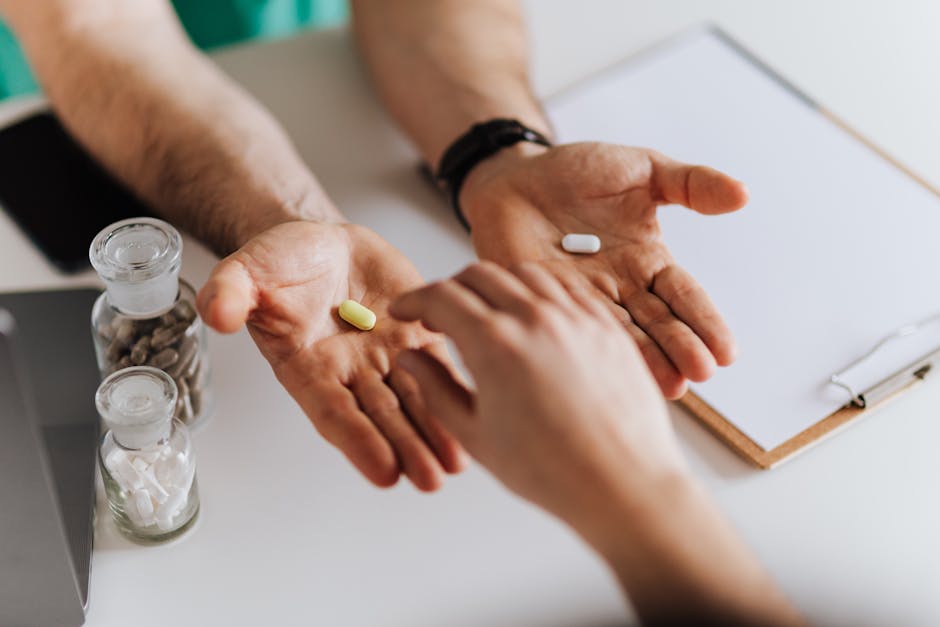Table of Contents
- Why Pharmacist Consultations Matter
- Preparing for a Productive Pharmacy Visit
- Mastering Medication Management
- Solving Minor Ailments on the Spot
- Wellness & Prevention: Beyond the Pill
- Teamwork: Linking Pharmacists with Your Doctors
- Future Trends: Pharmacy-First Care Models
- Frequently Asked Questions
Importance of Pharmacist Consultations
Role of Pharmacists in Healthcare
Pharmacist consultation benefits extend far beyond handing you a pill bottle. In less time than it takes for your coffee to brew, a certified medication expert can flag dangerous drug interactions, slash your out-of-pocket costs, and map a smarter path to wellness—all while you’re already in the store. Think of it as a free, on-demand mini-checkup that keeps you one step ahead of health problems and expensive doctor visits.
Pharmacists play a pivotal role in the healthcare ecosystem, serving not just as dispensers of medication but as available healthcare professionals. They possess extensive knowledge about medications, their effects, and appropriate dosages. By engaging in pharmacist consultations, individuals can gain insights and clarity regarding their health. For instance, a patient transitioning to a new medication can consult a pharmacist to understand potential side effects, leading to better health outcomes. See the ASHP Guidelines on Pharmacist-Conducted Patient Education & Counseling for best-practice standards.

Benefits of Consulting Pharmacists for Health Check-Ins
Consulting pharmacists for routine health check-ins offers several significant benefits:
- Comprehensive Medication Reviews: Pharmacists can assess all medications, including over-the-counter drugs, revealing interactions that patients may overlook.
- Personalized Health Advice: They provide tailored recommendations based on individual health needs, ensuring a more proactive approach to wellness.
- Accessibility: Pharmacists are often more accessible than doctors, making it easier for patients to seek advice without long wait times.
Imagine having a quick chat with a pharmacist during a grocery run about your recent headaches. They’ll pinpoint if it’s a medication issue or perhaps a hydration concern. Such interactions exemplify how pharmacists enhance patient education and awareness.
Preparing for a Pharmacist Consultation
Gathering Relevant Health Information
Before heading into a pharmacist consultation, it’s essential to gather relevant health information. Being prepared not only saves time but also ensures that you get the most out of your discussion. Consider bringing along:
- Current Medication List: Include both prescription and over-the-counter drugs.
- Health Conditions: Note any chronic illnesses, recent surgeries, or ongoing treatments.
- Allergies and Sensitivities: Be ready to discuss any known allergies to medications or food.
For example, if someone has allergies to certain antibiotics, communicating this detail can prevent potential health risks during the consultation.
Understanding Medication Usage
Understanding your medication usage is key to a productive pharmacist consultation. This includes knowing:
- Dosages: Be clear about how much of each medication you take and how often.
- Timing: Is a medication taken with food or on an empty stomach?
- Purpose: Why were you prescribed each medication?
By compiling this information, it becomes much easier for pharmacists to provide tailored advice and address specific concerns, ensuring that each consultation is thorough and useful.
Understanding Medication Management
Reviewing Prescription Medications
An essential aspect of medication management is reviewing prescription medications, and this is where pharmacist consultations truly shine. When you sit down with a pharmacist, they can help clarify:
- Dosage Recommendations: Are you adhering to the dosage prescribed? A pharmacist can confirm whether your current routine matches the doctor’s directives.
- Potential Side Effects: Knowing what symptoms to watch for can be insightful. For instance, if you’re on blood pressure medication, a pharmacist can explain common side effects and when to be concerned.
A personal anecdote illustrates this well; after discussing a recent increase in blood pressure medication, a friend learned about alternatives that mitigated unwanted side effects, enhancing their quality of life.
Discussing Over-the-Counter Medications
Equally important, discussing over-the-counter (OTC) medications with your pharmacist can provide invaluable insights. Many people use OTC products without fully understanding them, leading to:
- Interactions with Prescription Drugs: A pharmacist can identify any potential drug interactions that you might have overlooked.
- Dosage and Safety Guidelines: Proper dosing for OTC medications, especially for children or older adults, is critical. A pharmacist can guide you on safe practices.
Engaging in these discussions can empower you to make better choices for your health and well-being, ensuring that all aspects of your medication regimen are well managed.
Addressing Health Concerns with Pharmacists
Seeking Guidance on Minor Ailments
Pharmacists are invaluable resources for addressing health concerns, particularly when it comes to minor ailments. They can provide immediate advice, helping you navigate common issues like:
- Headaches: A pharmacist can recommend suitable over-the-counter pain relievers and suggest lifestyle changes to prevent future occurrences.
- Cold and Allergy Symptoms: They can offer options for managing symptoms effectively, such as antihistamines or natural remedies.
For example, a friend recently sought help from their pharmacist after battling a relentless cough. With just a few questions, the pharmacist suggested a suitable cough syrup and shared tips on staying hydrated. The relief was almost immediate, reinforcing the idea that consulting with a pharmacist can be just as effective as a doctor’s visit for minor health issues.
Identifying Potential Drug Interactions
Another critical role pharmacists play is identifying potential drug interactions. With individuals often juggling multiple medications, this expertise is crucial. During a consultation, pharmacists can evaluate:
- Combination of Medications: They’ll look for harmful interactions between prescriptions and OTC products.
- Natural Supplements: Sometimes, herbal supplements can interfere with prescribed medications, and pharmacists can guide you through which ones to avoid.
This proactive approach to medication safety not only enhances individual health awareness but can also prevent serious complications down the line. Ultimately, pharmacist consultations are a valuable part of maintaining overall wellness.
Promoting Wellness through Pharmacist Consultations
Lifestyle Recommendations
Pharmacist consultations extend beyond medication management; they play a vital role in promoting overall wellness through lifestyle recommendations. During these conversations, pharmacists can provide personalized advice tailored to your unique health needs. For example, they might suggest:
- Dietary Changes: Simple adjustments, like increasing fiber intake, can significantly impact digestive health.
- Exercise Plans: Depending on individual fitness levels, pharmacists may recommend exercises suitable for better heart health or weight management.
Think of a time when you’ve felt overwhelmed by dietary choices. A pharmacist can demystify nutrition labels and give practical tips that fit neatly into your daily routine, making it easier to lead a healthier lifestyle.
Vaccination and Preventive Health Advice
In addition to lifestyle guidance, pharmacists are excellent sources for vaccination and preventive health advice. They can:
- Provide Vaccinations: Many pharmacists offer flu shots, shingles vaccines, and other immunizations directly at the pharmacy.
- Educate on Preventive Measures: Pharmacists inform patients about the importance of routine screenings and vaccinations to prevent diseases before they start.
This proactive approach not only protects individual health but also contributes to the overall well-being of the community. Engaging with pharmacists boosts your knowledge and empowers you to take control of your health journey.

Collaborating with Your Healthcare Team
Communicating Pharmacist Recommendations to Doctors
Collaborating with your healthcare team ensures all aspects of your health are harmonized, and this includes conveying pharmacist recommendations to your doctors. Pharmacists often provide critical insights that can significantly enhance your treatment plan. For example:
- Medication Adjustments: If a pharmacist identifies a potential interaction or adverse effect, it’s essential to communicate this information to your doctor for timely adjustments.
- Lifestyle Modifications: Insights on dietary or lifestyle changes that a pharmacist suggests can be shared with physicians to align entire health strategies.
Recounting a friend’s experience emphasizes this point. After a pharmacist recommended an adjustment in medication due to side effects, they took this information to their doctor, leading to a more effective treatment plan.
Integrating Pharmacist Guidance into Overall Health Plan
Integration of pharmacist guidance into your broader health plan is vital for holistic wellness. This can involve:
- Medication Therapy Management: Incorporating the pharmacist’s insights into medication regimens ensures continuity of care.
- Preventive Care Plans: Pharmacist advice on vaccinations and screenings can fit seamlessly into annual health goals, making sure nothing is overlooked.
By viewing pharmacists as integral members of your healthcare team, you foster a more cohesive approach to your well-being. This collaboration ultimately empowers you to take charge of your health journey effectively.
FAQ
| Question | Answer |
|---|---|
| Do I have to pay for a pharmacist consultation? | No—most community pharmacies provide brief consultations and medication reviews at no cost. |
| Can pharmacists spot drug interactions? | Yes, pharmacists use clinical software and your medication profile to catch harmful prescription, OTC, or supplement interactions instantly. |
| How long does a typical consultation take? | For quick questions, 3-5 minutes; for a full medication review, expect about 15 minutes. |
| Do I need an appointment? | Walk-ins are welcome for most questions. Schedule ahead if you want an in-depth medication therapy management (MTM) session. |
| Can pharmacists adjust my prescription? | They can’t change doses independently but can recommend adjustments to your prescriber and facilitate faster updates. |
| Will my information stay private? | Absolutely—pharmacists follow HIPAA and use private counseling areas for sensitive discussions. |
| Can a pharmacist give vaccines during the same visit? | Yes—most U.S. states authorize pharmacists to administer flu, COVID-19, shingles, and other vaccines on the spot. |
| How often should I have a medication review? | At least once a year, or any time your prescriptions change or you start a new supplement. |